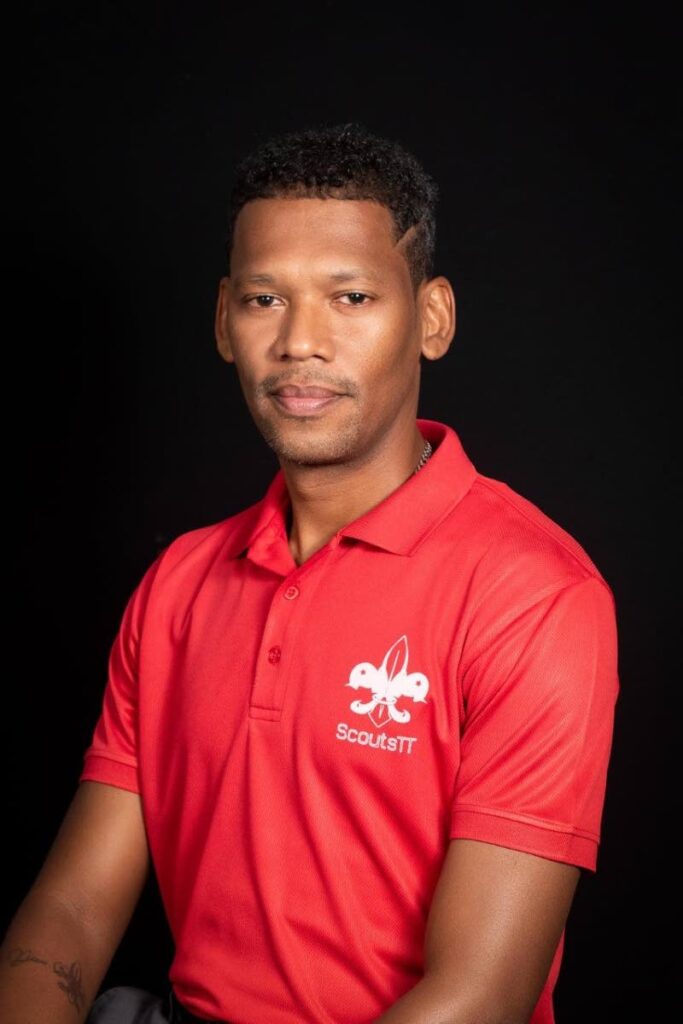Vital TT Boy Scouts in WWII

MARK AINSLEY JOHN
National Scout Commissioner
"Let us 'be prepared' for the war if that is possible without being pessimistic and then we shall 'be prepared' for anything that can turn up."
– The Chief Scout, Lord Baden-Powell of Gilwell, founder of the Scout Movement in 1914
THE ABOVE excerpt was part of a larger address to the scouts of the world by the founder, who, aware of the prevailing climate across the metropole, recognised that we should be prepared for the looming possibility of war. Baden-Powell, himself a seasoned military veteran and highly decorated general, recognised the inevitability of war.
Through the efforts of its colony commissioner, the local scouts responded to the call for service to the war effort. They were inspired by the reports coming from across the empire and were determined to do their part. So serious was the impact of the efforts of the Scout Movement that the Boy Scouts programme was changed permanently to include the mandatory element of signalling and first aid for all its scouts.
As the first great war ended and the ever-looming presence of the second became a reality, the Boy Scouts of TT ramped up its preparation of young men, the would-be soldiers of the war.
The Boy Scouts developed a coast guard section, expressly devoted to the training and practice of patrolling, watching and signalling across our shores. They partnered with the British Red Cross Society and formed Red Cross units of scouts, training in ambulatory care in anticipation of being called for service to defend the empire. They even developed themselves into auxiliary firemen by providing training in fire safety, fire-outing techniques and fire-spotting.
So emphatic was the preparations during both wars that the Rover Section, for young men aged 15-18, became the major participant in these activities. The Rovers became a dedicated crew of coast guardsmen who religiously practised twice a week at Queen’s Royal College and at Scout Headquarters on Duke Street, Port-of-Spain. They got their training from the scout programme with support from members of the Royal Navy stationed locally.
They set up their watch stations across 32 areas of the island, religiously devoted to ensuring the safety of the inhabitants of the colony. Rover scouts formed a standing part of the crew of police launches, their duties including rowing out to sea and watching the coast during blackouts. Checking, alongside police constables, to ensure that the blackout was maintained.
In 1939 the Boy Scouts were again called to action by the government. In San Fernando the scouts there were sworn in as special constables, replacing the policemen who were all placed on special duties. Their success at police work was replicated across the island, leading in time to a force of 76 special constables operating across Trinidad under the astute leadership of scout leaders Mc Lalchan and Marshall.
Uniquely, the Boy Scouts of TT had another special place in the war effort during the Second World War. Trinidad, because of its unique positioning, was the gateway to South America and as such the nexus of counter-intelligence was located on the island. The Boy Scout Secret Service was created using the scouts of Trinidad, ages 14-18.
These scouts were specially trained in counter-intelligence to be the eyes and ears of the military in the fishing communities of the island. This training was so successful that they were able to infiltrate and eventually discover an intelligence ring that used pigeons to pass sensitive defence information to the mainland.
By the 1940s the daily programme of the Boy Scouts had been altered to the point where competitions were held between scout troops to produce the best signallers. Three badges were developed, namely coast watchman, signaller and ambulance. These were keenly sought after with archives showing the names of troop leader Harold Knox and patrol leader Sydney Knox earning their badges in 1940 as members of the 2nd San Fernando Sea Scouts. Knox eventually served with distinction, having attained those badges and heading off to war.
The Boy Scouts of TT’s invaluable contribution to the war effort, and the protection of our borders must not be left unrecognised by the national community. The patriotism, sense of duty to king and country instilled in thousands of our young men led to many of them laying down their lives for freedom.
It is my sincere hope that we be included as part of the national Memorial Day (Sunday) in a way that recognises these efforts.


Comments
"Vital TT Boy Scouts in WWII"